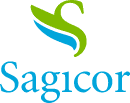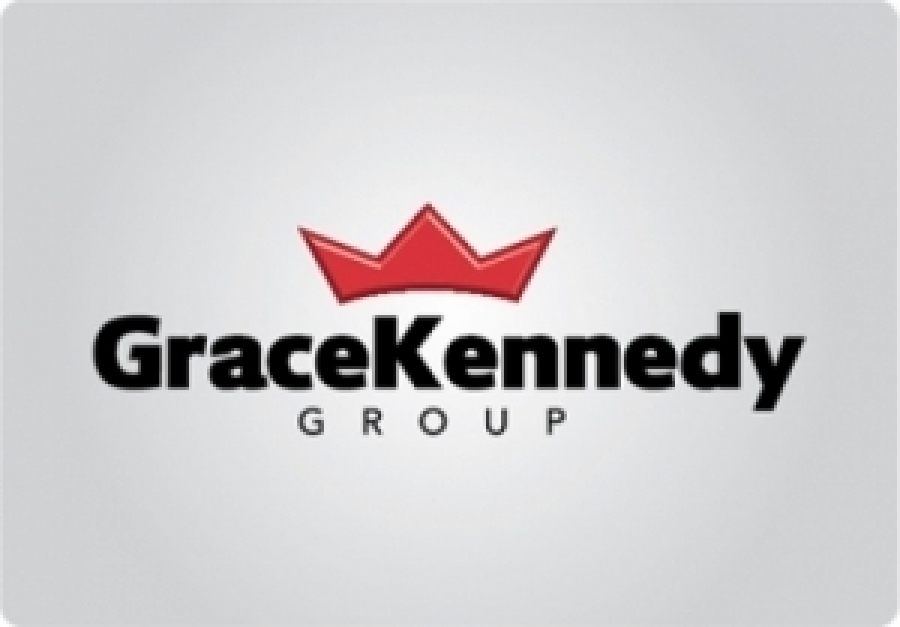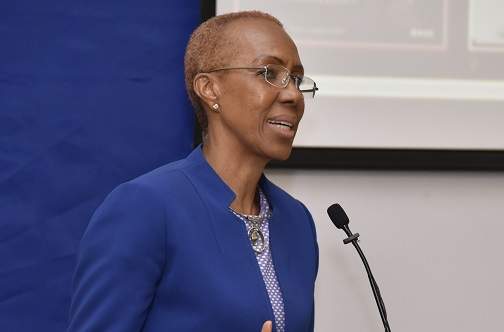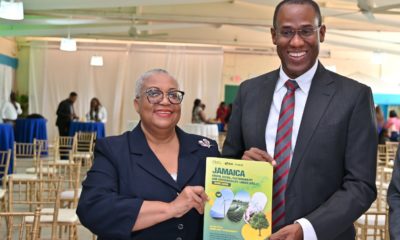As Environmental, Social, and Governance (ESG) factors gain traction worldwide, Caribbean companies are increasingly aligning with these principles to meet growing demands for transparency and responsibility. Globally, companies across industries are demonstrating the impact of ESG initiatives on their brand value, stakeholder trust, and even financial performance. In this evolving landscape, the Caribbean region is taking significant strides in its own ESG journey, often inspired by or collaborating with international corporations.
International companies have set benchmarks for comprehensive ESG integration that Caribbean firms are beginning to adopt. For example, Unilever’s “Sustainable Living Plan” and Microsoft’s carbon-negative pledge have illustrated how companies can drive social and environmental impact while strengthening business resilience.
Unilever’s initiatives, for instance, have led to substantial reductions in waste, water use, and greenhouse gas emissions, enhancing both operational efficiencies and brand perception. Likewise, Microsoft’s 2020 commitment to carbon negativity has inspired a wave of tech companies to adopt more robust carbon reduction strategies. Microsoft’s early achievements, including powering data centers with renewable energy, underscore how an ambitious ESG plan can benefit both environmental outcomes and investor confidence.
In the Caribbean, companies like Royal Caribbean Group are also setting ambitious ESG goals. The company’s “Seastainability” report highlights a multifaceted approach to ESG, such as implementing waste-to-energy systems and engaging in biodiversity projects. This not only demonstrates responsible environmental stewardship but also builds stronger connections with local communities, enhancing the brand’s reputation in the tourism industry
Similarly, Republic Bank in Trinidad & Tobago, in its 2024 annual report, outlined comprehensive measures to address climate risks, invest in social programs, and uphold corporate governance standards. This commitment to ESG aligns Republic Bank with global standards, fostering investor appeal and brand strength amid a shift towards responsible investment criteria.
For Caribbean corporate leaders, effective ESG integration requires actionable goals, ongoing monitoring, and transparent communication with stakeholders. To further align with international standards, regional firms can adopt practices like regular ESG impact assessments, clear data-driven metrics, and industry collaborations to address shared challenges.
According to PwC’s 2022 Caribbean Corporate Governance Survey, while over 60% of Caribbean firms acknowledge ESG’s strategic importance, board-level engagement on ESG remains limited, underscoring the need for greater governance oversight and education.
As Caribbean companies refine their ESG strategies, they are positioning themselves as competitive players in an increasingly responsible global economy. By adopting and adapting international best practices, these firms are not only driving positive change but also enhancing their appeal to a growing base of ESG-conscious investors, customers, and communities. This ESG shift is poised to shape the Caribbean’s corporate landscape, reflecting a larger global transformation that values sustainable and ethical growth. BS
Embracing ESG: Sagicor Group Jamaica’s Comprehensive Approach to Sustainability and Community

Sagicor Group Jamaica’s steadfast dedication to Environmental, Social, and Governance (ESG) principles reflects a core philosophy that permeates its vision, mission, and operational practices. Recognizing the role that corporate entities play in shaping a sustainable future, Sagicor has developed robust initiatives across each ESG component to drive value for stakeholders and contribute meaningfully to the Caribbean’s long-term resilience and prosperity.
Environmental Stewardship
Sagicor’s commitment to environmental sustainability is evident in its strategies for energy conservation, sustainable sourcing, and waste management. These initiatives are guided by a focus on reducing the company’s ecological footprint and supporting Jamaica’s transition to a climate-resilient economy.
Water Security Partnership: Recognizing the vulnerability of water resources, Sagicor has partnered with the government to ensure reliable water access across Jamaica. This collaboration aims to make water readily available even during droughts by 2025, underscoring a forward-looking approach to resource security.
Hybridized Work Environment: In line with global trends, Sagicor has adopted a hybrid work model to minimize its physical footprint. This strategy has significantly reduced the need for employee commutes, thus decreasing the company’s carbon emissions. Furthermore, office spaces have been outfitted with energy-efficient lighting, leading to a 75% reduction in energy consumption, which contributes to both environmental conservation and operational cost savings.
Digital Transformation: To further reduce its environmental impact, Sagicor has initiated a comprehensive digital transformation effort, aiming to minimize paper usage across the organization from 2024 to 2027. This shift not only reduces waste but also aligns with global best practices for sustainable business operations.
Eco-Waste Disposal: In collaboration with Recycling Partners of Jamaica, Sagicor Foundation has launched the Sigma Run Go Green Team to collect and recycle plastic waste from its events. This project has successfully recycled over 27,000 bottles, demonstrating Sagicor’s commitment to waste management and environmental responsibility.
Social Responsibility
Sagicor’s social responsibility framework centers on fostering community well-being, promoting social equity, and enhancing access to essential resources. Through targeted programs, the company supports marginalized communities and invests in sectors critical to Jamaica’s social and economic development.
Support for the Farming Community: Sagicor has created specialized financial products, such as agro-processing loans, to support farmers and fisherfolk. This initiative includes affordable healthcare options, reflecting Sagicor’s dedication to meeting the needs of those who often lack access to traditional financial services and healthcare.
Health and Education Investments: Over the past 26 years, Sagicor has invested more than J$600 million in Jamaica’s healthcare infrastructure, contributing to hospitals, children’s health, and disability support services. Additionally, Sagicor’s scholarship programs provide educational support at both tertiary and secondary levels, helping to foster a well-rounded, educated workforce for the nation’s future.
Empowering Women and Marginalized Groups: Sagicor offers entrepreneurial support programs and products designed to empower women and promote social equity. By providing family support leave policies and mentorship programs, the company cultivates a workplace environment that values inclusivity and diversity.
Governance Excellence
Upholding the highest standards of integrity and transparency, Sagicor’s governance framework is geared toward responsible, accountable leadership. This commitment is reinforced through rigorous policies, a focus on data privacy, and proactive cybersecurity measures.
Corporate Governance Structure: Sagicor has implemented a robust governance structure, with committees dedicated to investment, risk management, and IT oversight. This framework ensures vigilance across all operational areas, positioning the company to adapt to evolving risks and challenges. Furthermore, Sagicor’s property services are ISO certified, a mark of quality assurance and commitment to excellence.
Data Privacy and Cybersecurity: Data privacy is a priority for Sagicor, which has established a comprehensive Data Privacy Programme. This includes appointing a dedicated Data Protection Officer and adopting a “Privacy-by-Design” approach for product development. In addition, Sagicor’s cybersecurity framework adheres to global best practices, supported by board-approved policies and active threat monitoring.
Regulatory Monitoring and ESG Framework Development: Sagicor stays at the forefront of ESG regulatory changes, actively monitoring emerging standards and aligning its practices accordingly. The company is currently building out a dedicated ESG framework, which will further integrate sustainability into its corporate strategy, ensuring long-term alignment with global ESG priorities.
Conclusion
Sagicor Group Jamaica’s multifaceted ESG approach exemplifies a commitment to responsible business that goes beyond profit. By addressing environmental impacts, fostering social well-being, and adhering to ethical governance practices, Sagicor not only contributes to the Caribbean’s sustainable development but also strengthens its position as a leader in the region’s financial and social landscape. The company’s dedication to ESG is an inspiring model for other organizations seeking to integrate these essential principles into their operations and support a more sustainable, inclusive future for the Caribbean.
Supporting Sustainable Development Goals: ANSA McAL Group’s Progress in Sustainability

ANSA McAL Group, one of the Caribbean’s leading conglomerates, has consistently advanced its commitment to sustainable development. Since 2015, ANSA McAL has actively invested in green energy, circular economy initiatives, and equal opportunity policies, supporting several United Nations Sustainable Development Goals (SDGs). In recent years, its efforts have amplified, with initiatives across renewable energy, waste reduction, workforce safety, cybersecurity, and ESG integration.
Here’s a closer look at some key projects and the SDGs they advance.
Investing in Green Energy
Since 2015, ANSA McAL has led renewable energy initiatives, generating over 121,000 MWh of green energy in 2023. This aligns directly with SDG 7: Affordable and Clean Energy and SDG 13: Climate Action. The recent signing of a Memorandum of Understanding (MOU) with Kenesjay Green Limited at COP 28 reinforces the Group’s dedication to advancing private-sector green energy projects across the Caribbean, which will help reduce regional carbon footprints and mitigate climate change.
Circular Economy
ANSA McAL’s circular economy approach addresses SDG 12: Responsible Consumption and Production. ANSA Packaging’s impressive 91% increase in glass collection for recycling in Trinidad and Tobago exemplifies this commitment, as does the Beverage Sector’s redirection of over 2.4 million kilograms of spent malt grains from CARIB Breweries. By providing these materials to farmers as low-cost animal feed, ANSA McAL reduces landfill waste and supports local agricultural economies.
Caribbean Natural Capital Hub
In collaboration with The Cropper Foundation, ANSA McAL’s financial entities, ANSA Merchant Bank and ANSA Bank, launched the Caribbean Natural Capital Hub SME Grant Challenge in Trinidad and Tobago. This initiative fosters corporate awareness on environmental responsibility, supporting SDG 15: Life on Land. By introducing a technical working group to explore nature-based reporting, ANSA McAL contributes to preserving and enhancing biodiversity.
Safe Working Environment
Prioritizing a safe workplace, ANSA McAL has reduced workplace accidents by 38% since implementing Safe Systems of Work training. Over 2,400 employees completed this program, aligning the Group with SDG 8: Decent Work and Economic Growth by promoting safe, productive employment.
Enhanced Cybersecurity
ANSA McAL’s investment in cybersecurity, including a new Security Operations Centre (SOC) with Security Orchestration, Automation, and Response (SOAR) capabilities, underscores the Group’s commitment to SDG 9: Industry, Innovation, and Infrastructure. The Group’s 24/7 threat detection and incident response services exemplify how technology can strengthen resilience in an increasingly digital business environment.
Equal Opportunity and Culture Transformation
In addressing SDG 5: Gender Equality, ANSA McAL has assessed gender equity in remuneration across five major job levels, with pay differences favoring women in some cases. The Group’s culture transformation initiatives also aim to create an enriching, equitable work environment. By promoting diversity and inclusivity, ANSA McAL supports work-life balance and a culture of growth.
ESG Framework and Enterprise Risk Management
In 2023, ANSA McAL established a Group-wide Sustainability Committee, with representatives from all sectors, alongside the launch of its ESG framework. This framework, designed to integrate sustainability into corporate strategy, supports SDG 16: Peace, Justice, and Strong Institutions by fostering governance that is transparent and ethical. Furthermore, the ANSA McAL Playbook & Risk Standard defines the Group’s minimum risk management requirements, emphasizing safety, governance, and long-term impact.
As ANSA McAL builds on these efforts, the Group sets a benchmark for corporate responsibility in the Caribbean, aligning its strategic direction with international best practices and the UN Sustainable Development Goals.
Kingston Wharves Limited’s 2023 ESG Initiatives: Advancing Sustainability, Community Well-Being, and Environmental Protection

In 2023, Kingston Wharves Limited (KWL) reinforced its dedication to Environmental, Social, and Governance (ESG) practices by aligning with eight key United Nations Sustainable Development Goals (SDGs). As a crucial logistics hub in Jamaica, KWL uses its position and resources to create a sustainable impact, not only within its operations but also across the Newport West Port Community and Jamaica as a whole.
Commitment to Quality Education and Community Engagement
KWL is committed to empowering local communities through investments in Quality Education. The company supports early childhood education, youth development, and sports, recognizing that strong educational foundations contribute to long-term community resilience. By funding and participating in educational initiatives, KWL helps foster future leaders, workforce talent, and engaged citizens who can drive regional growth.
Promoting Decent Work and Economic Growth
One of KWL’s core beliefs is that every employee’s life should be positively impacted through their employment. The company’s Decent Work and Economic Growth strategy aims to nurture personal, professional, and community development by providing resources for self-sustaining growth. This commitment includes competitive wages, career advancement opportunities, and a supportive work environment that reflects the SDG spirit of “teaching a man to fish.”
Fostering Sustainable Cities and Communities
Recognizing the importance of safe and sustainable urban environments, KWL is dedicated to building Sustainable Cities and Communities. KWL actively promotes civic pride and environmental responsibility within the Newport West area, organizing and sponsoring clean-up and recycling initiatives. This commitment extends beyond its facilities to positively affect the surrounding areas, creating a healthy, dignified, and welcoming space for both residents and visitors.
Environmental Conservation: Life Below Water and Life on Land
Protecting marine and terrestrial ecosystems is central to KWL’s ESG mission. Through programs aligned with Life Below Water and Life on Land, the company has implemented measures to limit environmental impact. KWL spearheads plastic waste reduction, coastal clean-ups, and recycling projects to safeguard marine biodiversity. On land, KWL’s responsible sourcing practices and biodiversity initiatives strive to balance human activity with the preservation of natural habitats.
Gender Equality and Community Empowerment
KWL champions Gender Equality within its organization, providing leadership opportunities and supporting initiatives that empower all employees, regardless of gender. This inclusive approach strengthens the company’s organizational culture, fosters innovation, and demonstrates the impact of gender equity in driving sustainable corporate success.
Industry, Innovation, and Infrastructure Investments
KWL’s investments in Industry, Innovation, and Infrastructure reflect its commitment to long-term economic and technological advancement. The company continually invests in state-of-the-art technology and infrastructure to support its sustainability objectives and strengthen its operations. This focus on innovation includes integrating environmental and social governance practices into all business functions, reinforcing KWL’s role as a regional leader in responsible business practices.
Climate Action and Tracking Carbon Footprint
KWL has intensified its Climate Action initiatives, measuring and tracking greenhouse gas emissions from electricity and fuel use to reduce its carbon footprint. Through these ongoing assessments, KWL can implement data-driven strategies that contribute to climate change mitigation. All new construction plans incorporate fuel, energy, and water efficiency mechanisms, aligning with global standards for sustainable development.
Waste Management and Recycling
In 2023, KWL made significant strides in recycling and waste management, emphasizing the importance of Eco-Waste Disposal. The company introduced plastic bottle recycling within its daily operations, strategically placing recycling bins throughout its facilities. By collaborating with Recycling Partners of Jamaica, KWL organized two community clean-ups focused on reducing plastic waste and educated employees about the environmental impact of waste disposal. A plastic bottle recycling competition further engaged employees and vendors, reinforcing KWL’s commitment to environmental stewardship within the port community.
Conclusion
Kingston Wharves Limited’s 2023 ESG activities highlight a comprehensive and proactive approach to sustainable business practices. Through targeted initiatives in education, environmental conservation, community well-being, and infrastructure, KWL exemplifies a responsible corporate entity that seeks to contribute to both local and global sustainability goals. As KWL continues to embed the UN SDGs into its business operations, it sets a standard for Caribbean enterprises committed to achieving a sustainable and resilient future for the region.
GraceKennedy: Pioneering Environmental, Social, and Governance (ESG) for Sustainable Growth

GraceKennedy (GK) is undergoing a transformative integration of Environmental, Social, and Governance (ESG) principles into its operations. This comprehensive approach, rooted in the company’s corporate governance values, underscores GK’s commitment to sustainable growth and resilience within the communities it serves. Following the release of its first ESG statement in 2022 and an extensive ESG materiality assessment in 2023, GK established seven primary ESG goals. These goals are set to guide GK’s trajectory toward a sustainable future while meeting the expectations of stakeholders.
Integrity and Governance: Strengthening Trust and Transparency
Upholding the highest standards of integrity remains at the core of GK’s values. By December 2024, GK aims to establish a dedicated ESG hub on its website, where stakeholders can access the company’s ESG policies and reports. In addition to broadening its stakeholder engagement program, GK plans to publish a comprehensive Environmental, Social, and Governance Policy by 2025, creating a transparent platform for dialogue and ongoing feedback integration.
Employee Welfare and Diversity: Building a Respectful Workplace
As part of its commitment to a safe and inclusive work environment, GK strives to be an employer of choice. Key goals for December 2025 include launching a comprehensive Health, Safety, and Wellness Policy and implementing diversity training across all GK divisions. With a focus on enhancing employee engagement, GK’s workplace initiatives aim to create an atmosphere where each team member feels valued for their contributions.
Responsible Products and Services: Bolstering Consumer Confidence
GK has made responsibility and data privacy cornerstones of its business practices. The company plans to launch a Group Data Protection Policy by the end of 2023 and enhance cybersecurity awareness by 2026. Additionally, GK’s financial literacy program, GK Money Sense, is evolving into a broad-based training initiative designed to help customers make informed financial choices by December 2025. Aiming to support healthier lifestyles, GK has also committed to an accelerated product development strategy that reduces fat, salt, and sugar content across its portfolio by the same date.
Environmental Stewardship: Minimizing Ecological Impact
Reducing environmental impact is central to GK’s ESG agenda. By December 2024, GK plans to implement strategies to reduce virgin plastic use in its products and, by 2025, launch a comprehensive sustainability strategy for all GK entities. Expanding its greenhouse gas (GHG) measurement and tracking efforts, GK intends to implement GHG reduction strategies across all operations by 2026, underscoring the company’s commitment to climate resilience and sustainable resource management.
Community Engagement: Supporting Vibrant and Inclusive Communities
Improving community well-being is a top priority for GK. By 2024, GK will introduce an online CSR portal within its ESG hub, tracking community-focused activities across the organization. GK has also set ambitious targets for volunteer hours and investment, aiming for 4,000 hours and J$370 million annually in community development by 2030. These initiatives focus on expanding access to education, promoting healthy lifestyles, and fostering environmentally sustainable practices, reinforcing GK’s role as a pillar of community support and development.
The “We Care” Report: Mapping GK’s ESG Journey
In September 2023, GK published its inaugural ESG “We Care” report, which documents the company’s sustainability journey and outlines its ESG goals and targets. This report represents a milestone in GK’s commitment to ESG, providing a transparent account of its progress, priorities, and vision for the future.
Through these initiatives, GraceKennedy is not only enhancing corporate sustainability but also contributing to a resilient future for its stakeholders and the wider Caribbean community. GK’s commitment to ESG principles marks a forward-thinking approach that sets the stage for a legacy of sustainable growth and community empowerment.


 Businessuite Women3 weeks ago
Businessuite Women3 weeks ago
 Businessuite News244 weeks ago
Businessuite News244 weeks ago
 Businessuite News241 week ago
Businessuite News241 week ago
 Businessuite News24 International4 weeks ago
Businessuite News24 International4 weeks ago
 Businessuite News243 weeks ago
Businessuite News243 weeks ago
 Corporate Feature4 weeks ago
Corporate Feature4 weeks ago
 Business Insights3 weeks ago
Business Insights3 weeks ago
 Business Insights3 weeks ago
Business Insights3 weeks ago












 Senator Hill explained that Subsection Four provides that, where an Order was made providing for an absolute prohibition on the importation of goods pursuant to Subsection 1A, the Minister may, by Order, specify that the consignments be treated in the same manner as goods imported prior to the effective date of such prohibition, if the Minister is satisfied of the matter in Subsection 5.
Senator Hill explained that Subsection Four provides that, where an Order was made providing for an absolute prohibition on the importation of goods pursuant to Subsection 1A, the Minister may, by Order, specify that the consignments be treated in the same manner as goods imported prior to the effective date of such prohibition, if the Minister is satisfied of the matter in Subsection 5.
 For the third quarter of 2024, we reported exceptional financial results, with gross operating revenue reaching $1.9 billion from $782.8 million last year, an increase of 143.6% year-over-year. This growth is primarily attributed to the 100% acquisition of Rose Batteries in San Jose, California, and the 51% acquisition of Kaya Energy in the Dominican Republic. These strategic moves have significantly contributed to our growth trajectory.
For the third quarter of 2024, we reported exceptional financial results, with gross operating revenue reaching $1.9 billion from $782.8 million last year, an increase of 143.6% year-over-year. This growth is primarily attributed to the 100% acquisition of Rose Batteries in San Jose, California, and the 51% acquisition of Kaya Energy in the Dominican Republic. These strategic moves have significantly contributed to our growth trajectory. The renewable energy sector is also expanding, with a 2.45% growth and an employment surge to 8.2 million globally. The industry sees substantial funding, with over 25,000 rounds recorded and significant technological advancements in modular electrolyser systems, distributed energy resource management, and advanced photovoltaics. Supportive policies and large infrastructure investments are enhancing grid resilience and accelerating the deployment of renewable technologies.
The renewable energy sector is also expanding, with a 2.45% growth and an employment surge to 8.2 million globally. The industry sees substantial funding, with over 25,000 rounds recorded and significant technological advancements in modular electrolyser systems, distributed energy resource management, and advanced photovoltaics. Supportive policies and large infrastructure investments are enhancing grid resilience and accelerating the deployment of renewable technologies.



